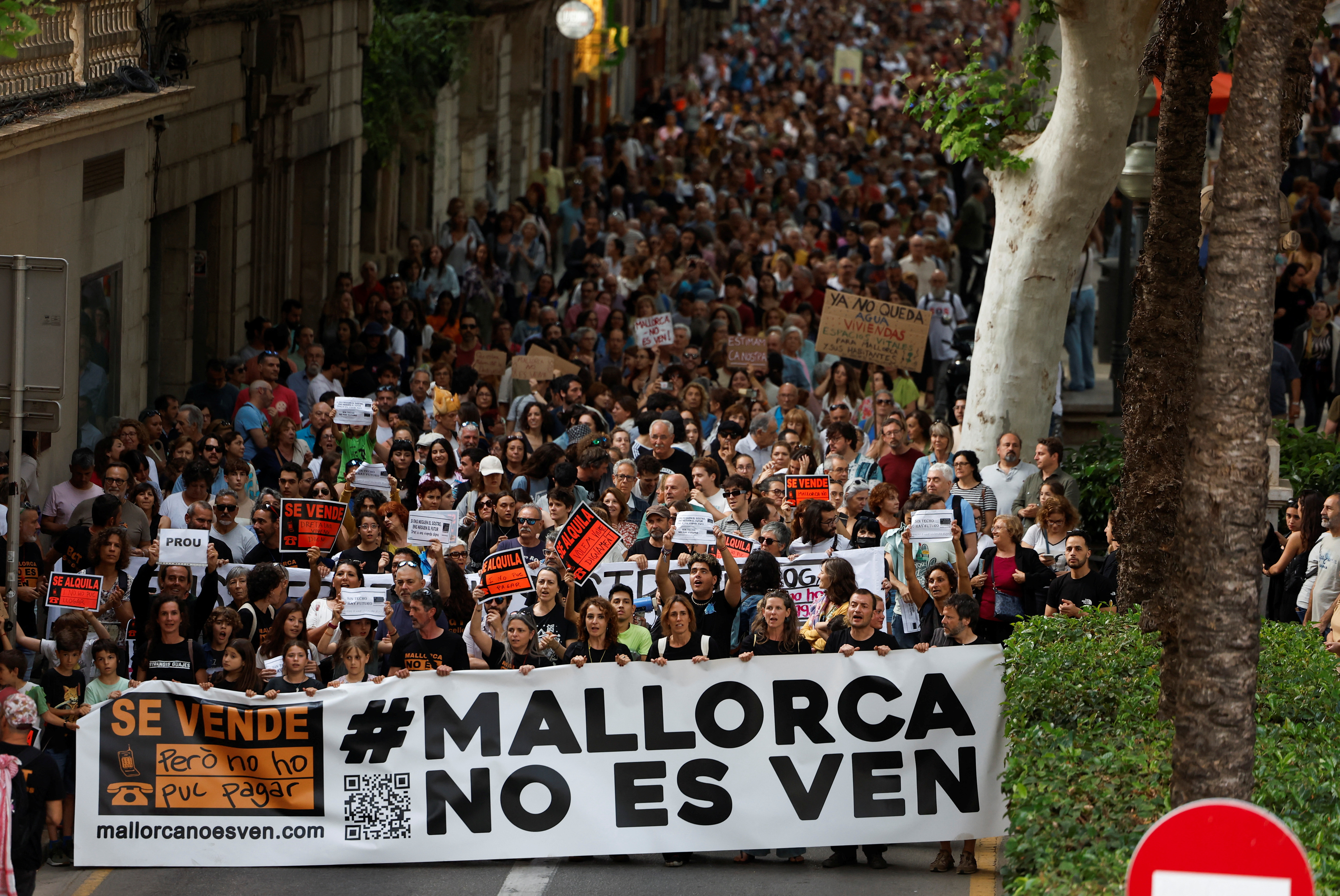TUI's Response to Mass Tourism Concerns in Mallorca
Sebastian Ebel of TUI Group discusses the protests against mass tourism in Mallorca, focusing on sustainable tourism and community impact.

TUI not immune to the consequences of mass tourism in Mallorca
Expressing his sympathy with the increasing protests against mass tourism in well-known Spanish locations such as Mallorca, Sebastian Ebel, CEO of TUI Group — one of the world's leading worldwide travel and Toursim organizations. In an interview with Germany's Bild newspaper, Ebel addressed complaints by local residents about tourism-related problems such as rising rents and housing shortages, sky-rocketing property prices and more traffic.
The holiday island of Mallorca has been engulfed by protests this year along with Barcelona, as residents have taken to the streets complaining about tourist numbers they say are overcrowding their lives. However, Ebel said the sector has to treat these protests as real-life issues and address them, recognizing that locals have every right to be upset with how they are being treated.
How TUI Does Sustainable Tourism
Ebel outlined that the reaction to TUI had been unfair and reminded its core customer base of package tourists tended to prefer hotels over private homes. This method, he added, takes a little of the weight off local housing markets. In addition, Ebel cited TUI's ongoing drive to reduce environmental footprints as part of its sustainability strategy, including reducing water consumption across its operations.
Ebel added that tourism demand must be evaluated on an area-by-area basis as well. He called for tourism planning to become more community-oriented and said "the local population should decide how much tourism they want.
Economic Impact & Forecast for the Future:
This comes despite the fact that TUI revealed a strong growth in bookings for summer holidays on Mallorca compared to previous years, which has sparked protests. This is a question that comes to mind when faced with the challenge of growing tourism in ways which deliver economic benefits, but do not limit sustainability and well-being for local communities.
The situation in Mallorca is mirrored by an ongoing debate over the viability of mass tourism to popular world destinations. While local economies are struggling to balance between the financial requirements and preservation of community well-being, TUI is leading in transforming industry practices for sustainable travel.
Moving Forward
Mallorca is a striking current example of the kind of problematic tourism development-community impacts interface that seem to have become commonplace around the world. While getting through these obstacles, the world will keep a close eye on TUI's approaches and measures to more sustainable tourism forms for communities.
Ebel's comments have helped open up a dialogue that could lead to more potential partnerships between tourism and the community at large, toward building an Antarctica where its resident benefit as much from this business like any point SE Asia or Africa. For TUI, and others like it: avoiding the larger upset of not being able to open at all during peak tourist season may be taken by other companies as a signal for how they should manage their approach.





